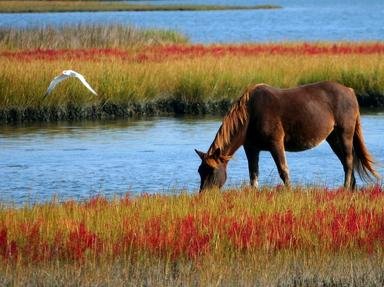
Where Did You Get That Horse? Trivia Quiz
A horse isn't just a horse. Many unique breeds trace their origins to different countries around the world. Can you match ten breeds with their country of origin?
A matching quiz
by stedman.
Estimated time: 3 mins.
- Home
- »
- Quizzes
- »
- Animal Trivia
- »
- Horses
- »
- Horse Breeds